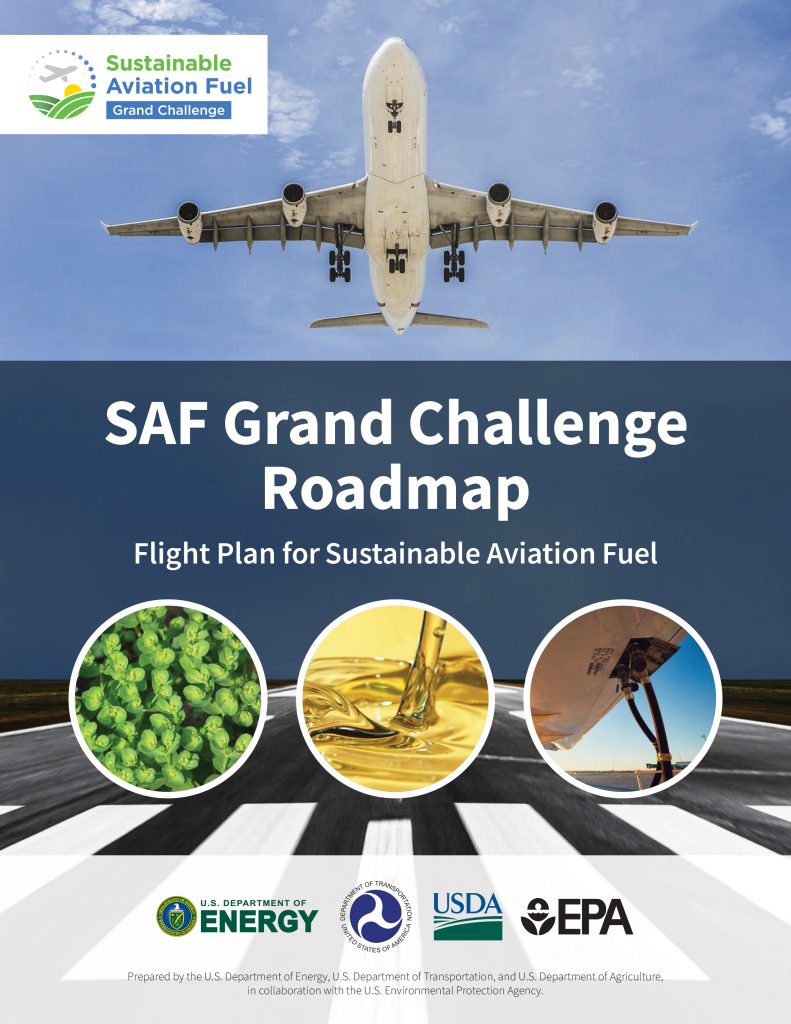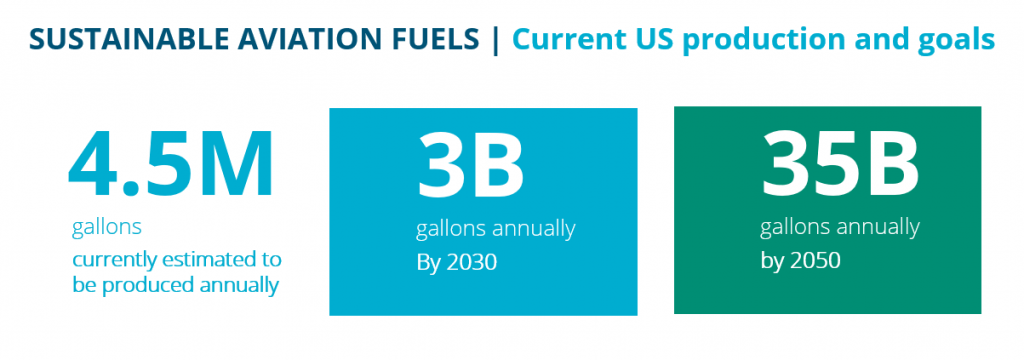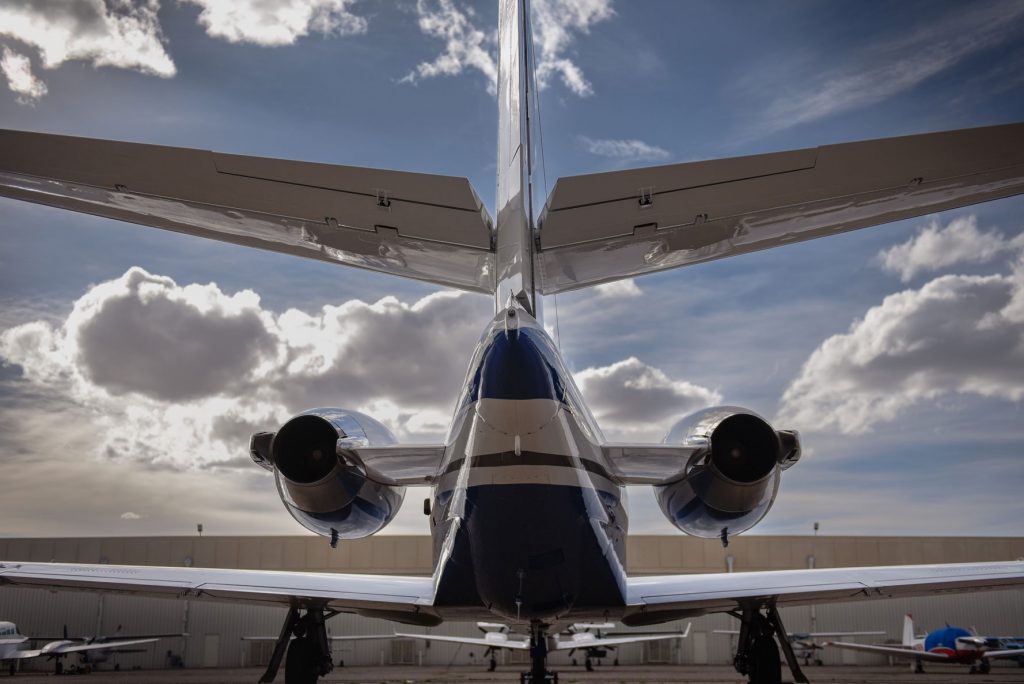
If you’ve searched online for a plane ticket recently, you may have noticed new information on display: the relative emissions of your flight. But what if this dropped to zero? An effort recently recognized by the secretary of energy is focused on just that — decarbonizing not just passenger flights, but the entire aviation sector.
Sustainable aviation fuel
In January, Secretary of Energy Jennifer Granholm announced the recipients of the Secretary’s Honor Awards for 2022. Anthe George, a senior manager in Applied Biosciences and Engineering, was named as one of the national lab contributors for the multiagency and multilab team which received a Secretary of Energy Achievement Award for their work on the Sustainable Aviation Fuel Grand Challenge.
According to the grand challenge’s website, it resulted from the DOE, the Department of Transportation, the Department of Agriculture and other federal government agencies collaborating on a comprehensive strategy to produce sustainable aviation fuels on a commercial scale. An announcement from the DOE Bioenergy Technologies Office congratulated the team and lists more than 43 contributors from government agencies and national laboratories. The grand challenge and increased production of sustainable aviation fuels are integral to reducing emissions and meeting national and international goals for decarbonization.
“With our partners, Sandians are working hard to advance sustainable aviation fuels and other biofuels, research which is critical to promoting the bioeconomy and combating climate change,” Anthe said. “The SAF Grand Challenge road map describes six areas where we need to focus our energies for SAF to become a reality.”
What’s up in the air?
According to the Environmental Protection Agency, greenhouse gas emissions from aviation comprise about 8% of the country’s transportation emissions. Aviation is a sector that will be difficult to decarbonize because of the lack of viable alternatives to energy-dense liquid fuels.

Due to this, sustainable aviation fuel is being ambitiously pursued to reduce global and national greenhouse gas emissions and meet the national goal of achieving net-zero emissions by 2050. Currently, the U.S. can produce approximately 4.5 million gallons of sustainable aviation fuel each year. The grand challenge team identified two goals to meet emission reduction targets: produce 3 billion gallons of sustainable aviation fuel per year by 2030 and 35 billion gallons per year by 2050. The effort’s road map provides a “flight plan” for sustainable aviation fuel to be produced on a commercial scale.
Climate security strategy
National laboratories have been contributing research capabilities to the science of biofuel and sustainable fuel production for decades. Recently, Lawrence Berkeley National Laboratory publicized promising research about a supercharged organism with the energy potential to become rocket fuel. Sandia supplied computer simulations to evaluate the product’s performance. Just last year, Sandia scientists published research that showed how cycloalkanes when used in jet fuel could reduce condensation trail formation and soot emissions compared to current fuels in use. Sandia’s work to develop biofuel components for sustainable aviation fuel and technologies to reduce climate-forcing aviation emissions also contributes to Labswide strategic efforts to advance climate security.

“I’m really inspired by the work I see every day from Sandia’s bioenergy teams,” said Sarah Allendorf, director for the Transportation & Industrial Processes Program. “Anthe’s invitation to contribute to the strategy that will guide the nation’s investments towards commercial-scale sustainable aviation fuels is a clear indication of Anthe’s and her team’s scientific leadership. It’s wonderful that Secretary Granholm has chosen to highlight this important transportation energy problem, and I’m delighted that she has included Anthe among the honorees of her Secretary of Energy Achievement Award.”
According to the formal announcement, the Secretary’s Honor Awards remain the DOE’s highest internal form of recognition for employees and contractors who “accomplished significant achievements on behalf of the Department of Energy.”
“I hope that our awardees derive as much enjoyment from their work as the pride we draw from their contributions,” Granholm said at the award’s event. “But I suspect that what ultimately motivates them is service to their country and the members of their community.”